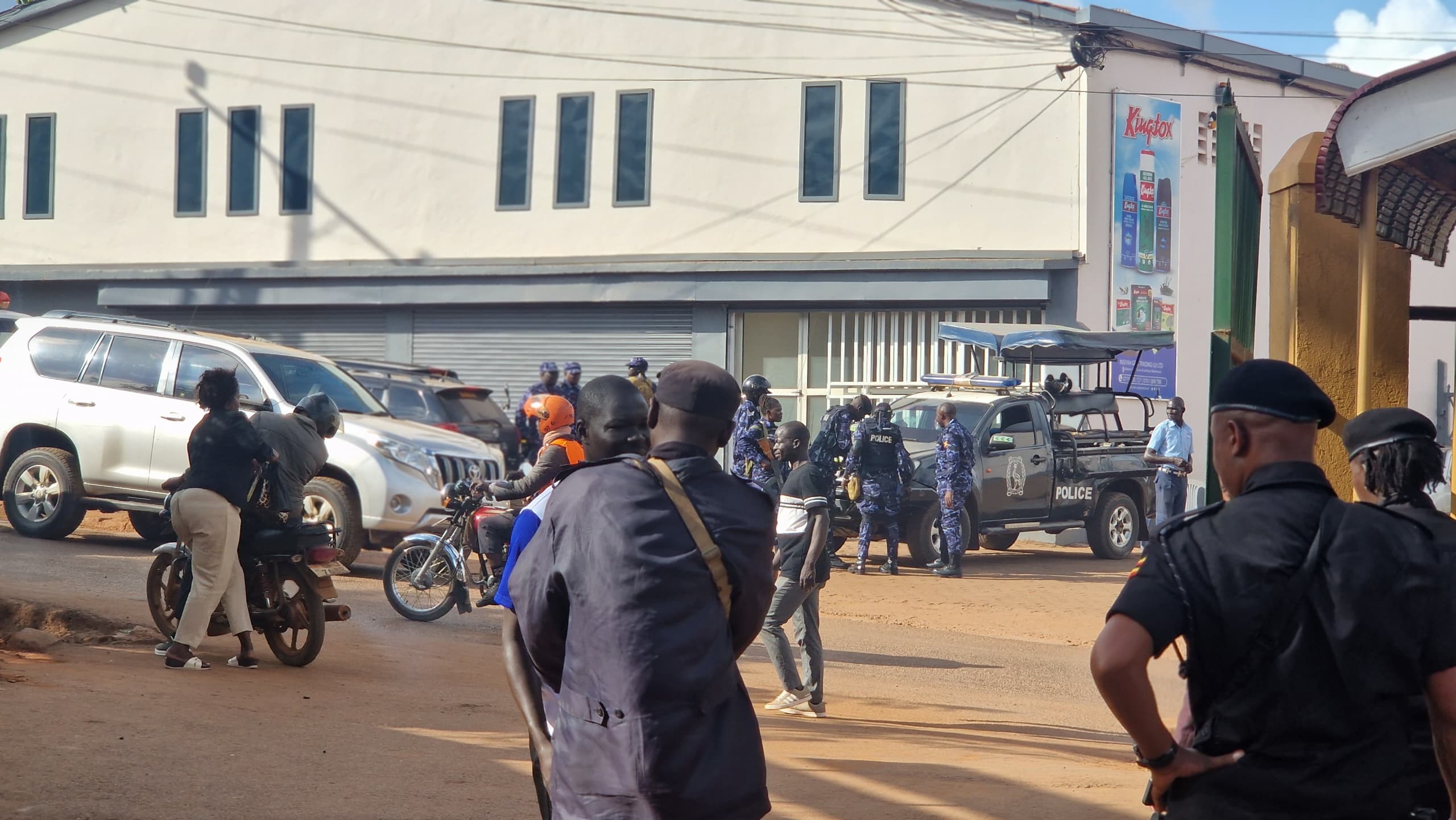Justice on the Line as Besigye's Six-Month Detention Challenges Rule of Law

Security is exceptionally tight at the Nakawa Magistrates Court this morning as veteran opposition figure Dr Kizza Besigye returned for a crucial hearing.
A heavy deployment of both regular police and the specialized Counter-Terrorism Unit is visible around the court premises.
At least three patrol vehicles and one prison transport vehicle are stationed outside, indicative of the high-profile nature of the case.
The heightened security presence comes as Dr Besigye and his co-accused, Hajj Obeid Lutale, have spent over six months on remand without being committed to the High Court for trial on treason charges.
During the previous court session, proceedings were stalled after Dr Besigye declined to continue in the absence of his lead counsel, Kenyan lawyer Martha Karua.
He informed the court that the other lawyers on his team, including Kampala Lord Mayor Erias Lukwago and Eron Kiiza, did not have instructions to proceed with the main case at that time.
Their instructions, the court heard, were specifically to argue an application for mandatory bail.
The defense team contends that with the state still conducting investigations and no committal to the High Court after more than six months of incarceration, their clients are legally entitled to be released on bail.
This legal argument is grounded in Article 23(6)(c) of the 1995 Ugandan Constitution and Section 76 of the Magistrates Court Act.
These provisions stipulate that a person who has been on remand for six months without committal to the High Court must be released on bail.
Speaking on the matter, Besigye's lawyer Kiiza has been vocal about the legal imperative for his client's release.
He argues that the law is being disregarded.
"The law in Uganda commands the magistrates to release Dr Kizza Besigye and Obeid Lutale since they are appearing in Court after six months without committal to the High Court," Kiiza said.
He expressed frustration that some judicial officers appear to be influenced by "orders from above," which he claims are "killing our country and making judicial officers turn deaf ears to the law."
Kiiza further elaborated on the legal framework, stating, "This Section 76 of the Magistrates Court Act is in tandem with and operationalises Article 23(6)(c) of the 1995 Uganda Constitution.
"The Constitution, Uganda’s supreme law, says Court must release such a person."
Kiiza has also cautioned against what he sees as attempts by some judicial officers to "amend this law without involving Parliament and Ugandans through rulings and illegal practice directions."
The court is expected to hear arguments on the mandatory bail application, a decision that will be closely watched by human rights advocates and the political opposition.
The state has previously argued that the complexity of the investigations necessitates more time.



0 Comments